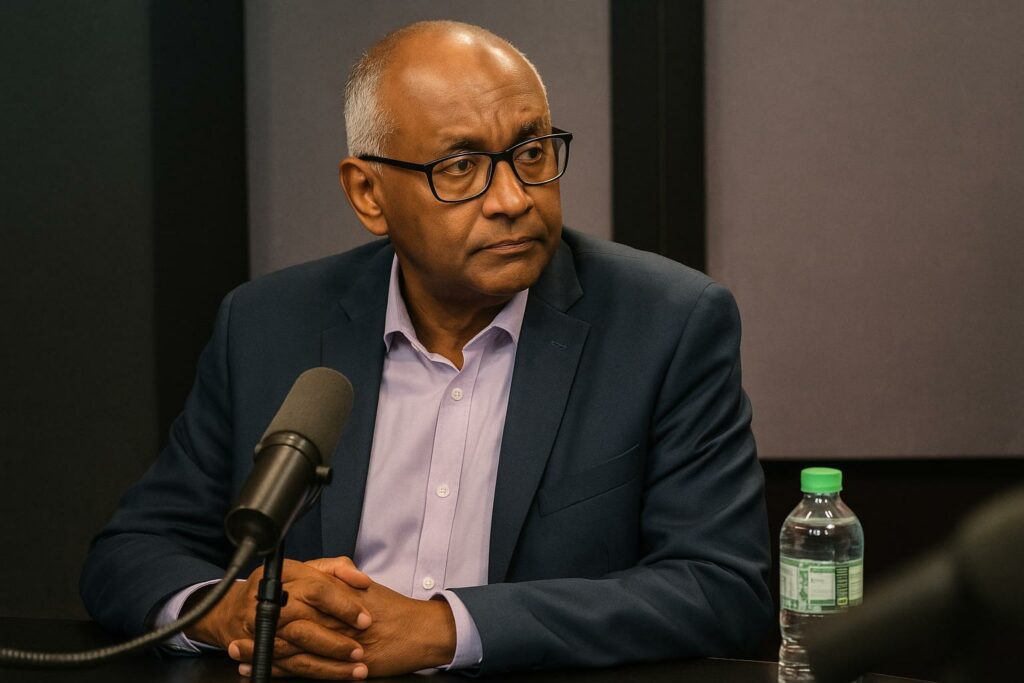Seasoned Congolese Diplomat Steps Forward
When Firmin Édouard Matoko tendered his resignation on 14 March 2025, the corridors of UNESCO’s Paris headquarters fell briefly silent. After thirty-five years devoted to the organisation, the former Assistant Director-General for Priority Africa declared himself “a free man”, instantly turning the page from civil servant to candidate for Director-General. The election, scheduled for 6 November during the 43rd General Conference in Samarkand, will decide whether the 69-year-old economist transforms institutional knowledge into executive authority (Jeune Afrique, 29 Sept. 2025).
His late entry startled observers who had watched Egypt’s Khaled el-Enany tour capitals for two years. Matoko replies with a diplomat’s smile that he “left at the right hour”, honouring internal deadlines and the impartiality owed to his previous portfolio, often dubbed UNESCO’s foreign ministry.
Brazzaville’s Calculated Diplomacy at Play
Matoko’s bid would have remained theoretical without the imprimatur of his home government. In January 2024 Prime Minister Anatole Collinet Makosso endorsed the project; President Denis Sassou Nguesso swiftly added the full weight of Congo-Brazzaville’s diplomacy. Since then, the Head of State has raised the candidacy in every bilateral and multilateral forum, offering what the candidate describes as “indefectible backing”.
The strategy became visible at the African Union summit in Addis-Ababa last February, where Sassou Nguesso personally introduced his ‘poulain’ to fellow leaders, sounding out support despite an earlier AU communiqué favouring Cairo’s contender. Officials close to the delegation recall that apart from Angola’s President João Lourenço, few interlocutors invoked the continental endorsement for El-Enany, a nuance the Congolese camp interprets as room for manoeuvre.
Navigating a Global Campaign Trail
Liberated from managerial obligations, Matoko embarked on a compressed world tour: East Asia in June, Central Europe in late August, Latin America in September, and a rolling schedule across Africa. His declared goal is audacious—meeting representatives of each of the fifty-eight Executive Board members before the October straw poll that precedes the decisive November vote.
Seasoned by years negotiating post-conflict cultural programmes in Nicaragua, Cambodia or post-Gulf-War Iraq, he frames discussions around UNESCO’s foundational mandate rather than electoral arithmetic. Yet aides concede that Egypt’s well-funded lobbying machine prompted this intensive itinerary. “Familiarity with the House is not an exemption from persuading its shareholders,” one adviser notes.
À retenir
Congo-Brazzaville positions an institutional insider to succeed Audrey Azoulay, arguing that three consecutive ‘external’ Director-Generals warrant a return to veteran expertise. The campaign simultaneously tests African unity, as the African Union’s earlier consensus around Egypt faces gentle but persistent recalibration from Brazzaville’s charm offensive.
Le point juridique/éco
UNESCO’s electoral architecture grants the Executive Board a pivotal filtering role: its October nomination almost invariably guides the General Conference’s November ballot. The procedure underscores the importance of early-stage coalition building across geopolitical groups—Africa, Arab States, Asia-Pacific, Europe-North America, and Latin America-Caribbean—each wielding informal yet potent veto dynamics. Budgetary stewardship also looms large; Matoko’s economic pedigree and experience restoring programmes in resource-strained contexts constitute assets for members concerned by the organisation’s financial resilience after historic withdrawals and re-engagements.
A Life Forged Between Rome and Paris
Matoko’s trajectory began with a linguistic detour. A scholarship from Italian cooperation in 1976 whisked the Brazzaville native to Rome’s La Sapienza, where he earned a doctorate in economics and commerce before completing postgraduate studies in Florence under the tutelage of future European Central Bank president Mario Draghi. Recruiting young African talent for development missions, the Italian government proposed a leap into the United Nations system—an offer he still calls ‘the opportunity of a lifetime’.
From Dakar to Montevideo and Addis-Ababa, he steered regional bureaux, navigating both the euphoria of peace accords and the painstaking reconstruction of educational and cultural networks. “I have travelled well,” he concedes, though his latter years in Paris required, in his words, “the bureaucrat’s suit” to champion Priority Africa and external partnerships.
Stakeholders Weigh Prospects for 6 November
Diplomatic insiders describe the 2025 contest as a referendum on institutional memory versus high-profile political leadership. Supporters liken Matoko’s candidacy to the ascent of Kofi Annan, another UN insider who combined technocratic credence with consensual diplomacy. Skeptics counter that visibility and robust state lobbying may prevail over institutional seniority.
In the gilded halls of UNESCO, however, such debates often yield to the chemistry of personal trust. During a recent media stop in Paris, Matoko told RFI that he is “a candidate of all nations, of all peoples”, distancing himself from factional allegiance while invoking a unifying ethos embedded in UNESCO’s constitution. Whether that narrative resonates with the Executive Board will become clear in early October; the ultimate verdict awaits the Samarkand skyline on 6 November.

